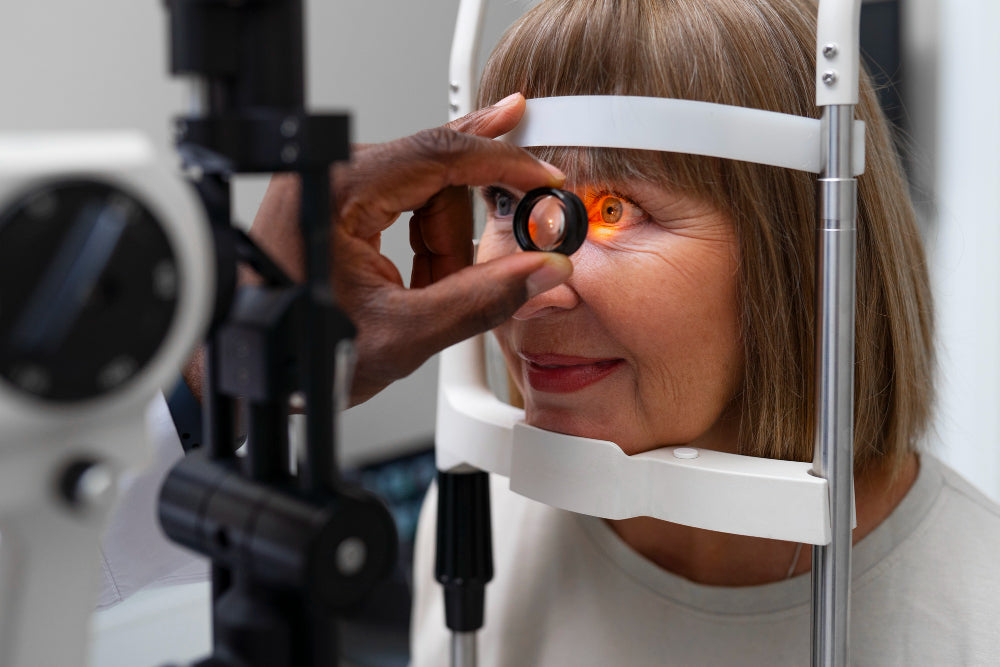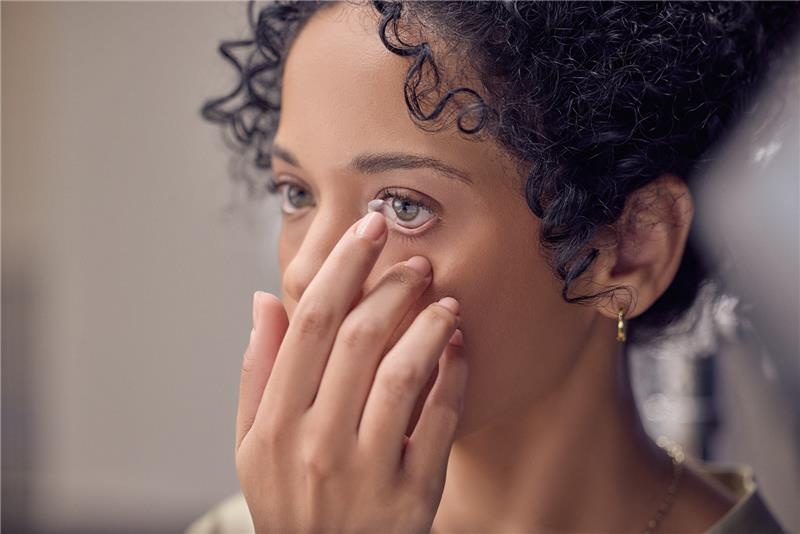Contact lenses are a popular choice for vision correction. They offer convenience and flexibility and add a touch of elegance to one's appearance.
Knowing how long you can safely wear contact lenses will help you maintain good eye health while enjoying the experience. Contact lenses' lifespan depends on the lens type and proper care.
You can typically wear daily contact lenses for up to 14-16 hours, while extended-wear lenses can be worn continuously for up to 7 days. Always follow your eye care professional's advice and the lens manufacturer's guidelines.
Here's a simple guide to help you navigate the dos and don'ts of contact lens wear. Read on to learn more.
What Is the Lifespan of Contacts?
The lifespan of contact lenses varies based on the type:
Daily Contacts: These should be discarded at the end of each day and before sleeping.
Weekly Contacts: These can be worn for one week and must be replaced.
Monthly Contacts: These can be worn for a month, but it is essential to follow the manufacturer's guidelines for cleaning and replacement.
What About Cosmetic Contacts?

Cosmetic contacts, such as colored or patterned lenses, are mostly worn for decorative purposes. They follow the same rules as traditional contact lenses and must be treated with the same care.
How Long Can You Wear Contact Lenses?

How long you can keep contacts in your eyes depends on your personal preferences and the type of lenses you wear. Even so, 40-91% of contact lens wearers must adhere to the recommended wearing and replacement schedules.
To avoid any challenges, you should discuss your needs with your eye doctor to determine your best option. Daily wear contacts are ideal for occasional use, while weekly or monthly contacts are better suited for frequent wear.
How Many Days in a Row?
Daily contacts are designed for one-time use and should be discarded at the end of each day. Extended-wear contacts can be worn for up to seven days, but proper cleaning and replacement guidelines are crucial to avoid infection.
What About Your First Time?
When you first start wearing contacts, it is essential to follow your eye doctor's instructions. It may take time for your eyes to adjust to the new lenses. If you experience discomfort or redness, discontinue use and consult your doctor.
How Many Hours per Day?
Here's your solution if you have considered how long to wear contact lenses daily. Most people can wear contacts for 14-16 hours a day. However, it's always best to remove them before sleeping to give your eyes a break and reduce the risk of infection.
How Many Years Can You Wear Contact Lenses?

There is no specific limit to how many years you can wear contact lenses. Many people wear them for decades without issues. The key is to follow proper lens care and replacement schedules.
Regular eye exams are also vital to ensure your eyes remain healthy. Your eyes may change as you age, requiring adjustments to your lens prescription or type.
Who Can Wear Contact Lenses?
Most people who need vision correction wear contact lenses. They are suitable for correcting various vision problems, such as:
- Nearsightedness (myopia)
- Farsightedness (hyperopia)
- Astigmatism
- Presbyopia
However, only some are good candidates. Certain eye conditions, allergies, and environments may make wearing contact lenses difficult. A thorough examination by an eye care professional will determine if contact lenses are right for you.
What are the Risks of Wearing Contacts Longer than Recommended?

Sleeping in contacts or wearing them longer than recommended can be risky for your eyes. Skip contact lens wear and give your eyes a rest with fresh air. Experts recommend eight hours as a maximum wear time, but it can vary by person and lens type.
The main concern is oxygen deprivation. Contacts block some oxygen from reaching your eyes, and overwearing them can starve your corneas, leading to irritation, redness, and even infection.
In severe cases, it could cause permanent vision damage. Experts say daily-wear contact lenses are the least risky.
Tips for Safe Contact Lens Wear

1. Follow the Schedule
Stick to the recommended wear time and replacement schedule for your lenses. Overwearing lenses can lead to discomfort and increase the risk of eye infections. Adhering to the schedule ensures optimal eye health and comfort.
2. Maintain Hygiene
Wash your hands before handling lenses. Use fresh solutions for cleaning and storing. Avoid using tap water to cleanse your lenses or lens case, as it can introduce harmful microorganisms. Always keep your lenses clean. Also, clean the lens case and replace it every three months.
3. Avoid Sleeping in Lenses
Unless they are designed for extended wear, remove lenses before sleeping. Sleeping in lenses reduces oxygen supply to your eyes, which can cause complications. If you accidentally sleep in your lenses, consult your eye care professional immediately.
4. Stay Hydrated
Keep your eyes moist with rewetting drops if necessary. Dry environments, screen time, and air conditioning can dry out your eyes, making lens wear uncomfortable. Drinking plenty of water also helps maintain eye hydration.
5. Regular Check-Ups
Visit your eye specialist regularly to ensure your lenses are still suitable for your eyes. Regular exams can detect potential issues early and help adjust your prescription if necessary. Keeping your eye care appointments is crucial for long-term eye health.
Caution: Daily contacts are acceptable, but if you wear extended-wear lenses, it's best to remove them at least once a week for overnight cleaning.
Conclusion
You just read a comprehensive guide to wearing contacts safely and effectively. It's not rocket science!
Proper care and replacement of contact lenses are crucial for maintaining healthy eyes. By understanding the lifespan of your contacts and following the guidelines for each type, you can enjoy the experience of contact lens wear while minimizing the risks.
Remember, your eyes are precious. Treat them with the care they deserve, and you'll enjoy clear, comfortable vision for many years.
Also Read:





